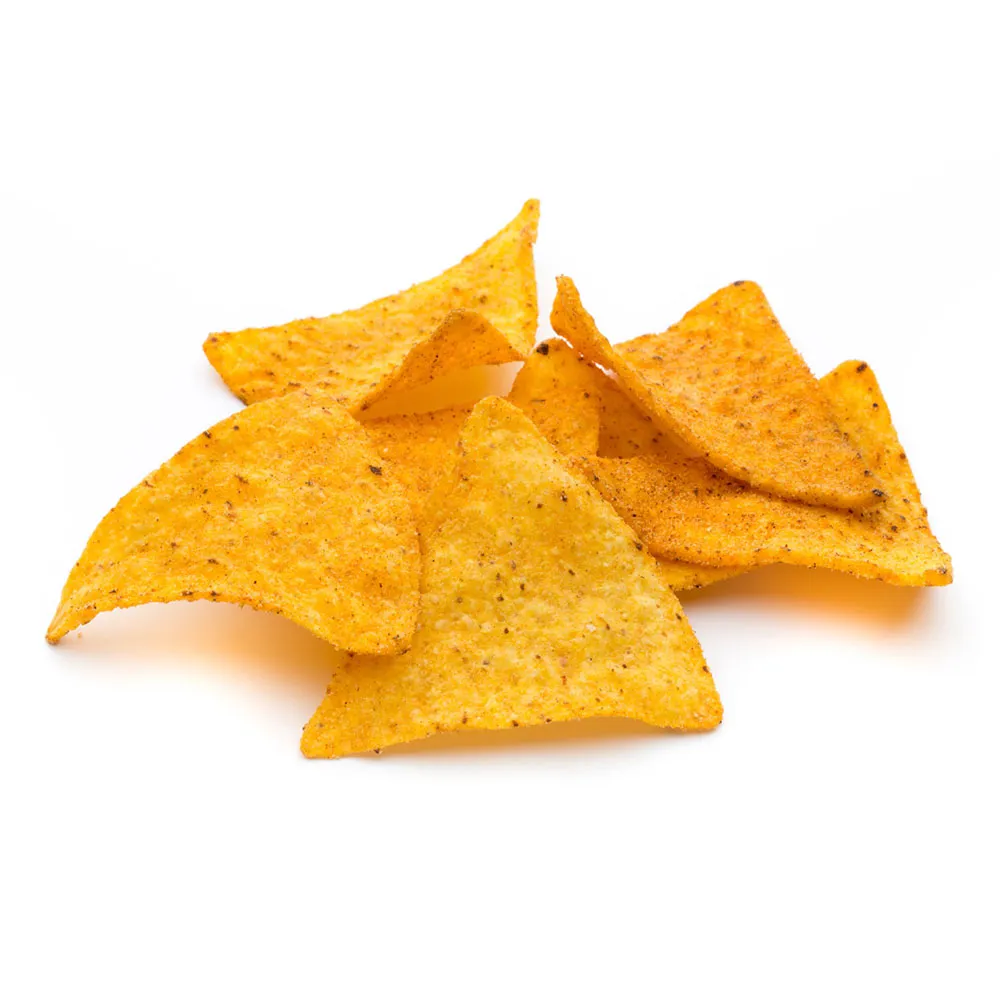
| Glycemic Index | Glycemic Load |
63
|
28.8
|
The glycemic index (GI) of corn chips equals to 63, which classifies it as a moderate GI food. The glycemic load (GL) of corn chips is equal to 28.8, which classifies it as a high GL food.
| Nutrition Facts | |
| Calories (kcal) | 518 |
| Carbohydrates (g) | 63 |
| Proteins (g) | 6 |
| Fats (g) | 28 |
100 grams of corn chips contain 518 kcal (2167 kJ), 6 grams of proteins, 63 grams of carbohydrates, and 28 grams of fats.
Corn chips are a popular snack food that is enjoyed all around the world. They are often consumed as a crunchy, savory snack, or as an accompaniment to dips, salsas, and other condiments. In this article, we will discuss the nutritional benefits, drawbacks, nutrition facts, and health benefits of corn chips.
Nutrition Facts:
A typical serving size of corn chips is one ounce, which is approximately 28 grams. One ounce of corn chips contains approximately 150 calories, 20 grams of carbohydrates, 7 grams of fat, and 2 grams of protein. Corn chips are also a good source of fiber, with one ounce providing approximately 2 grams of dietary fiber.
Health Benefits:
- Source of Carbohydrates: Corn chips are a good source of carbohydrates, which are the body’s primary source of energy. Consuming carbohydrates can help to boost energy levels and support physical activity.
- Contains Fiber: Corn chips are a good source of dietary fiber, which is essential for maintaining healthy digestion and preventing constipation. Fiber can also help to reduce the risk of developing chronic diseases, such as heart disease and type 2 diabetes.
- May Provide Some Nutrients: Corn chips contain several essential nutrients, such as vitamin B1 (thiamine) and iron. However, they are not a significant source of these nutrients and should not be relied upon as a primary source of nutrition.
- Convenient Snack: Corn chips are a convenient snack food that can be easily packed and taken on-the-go. They are also relatively inexpensive and widely available.
Drawbacks:
- High in Fat: Corn chips are high in fat, with one ounce providing approximately 7 grams of fat. Consuming too much fat can lead to weight gain and increase the risk of developing chronic diseases, such as heart disease and diabetes.
- High in Calories: Corn chips are high in calories, with one ounce providing approximately 150 calories. Consuming too many calories can lead to weight gain and increase the risk of developing chronic diseases.
- May Contain Additives: Many brands of corn chips contain additives, such as artificial flavors and colors, preservatives, and excess sodium. These additives can be harmful to health and may increase the risk of developing chronic diseases.
- May Contain Acrylamide: Corn chips, like other fried and baked foods, may contain acrylamide, a chemical that forms when carbohydrates are cooked at high temperatures. Acrylamide has been linked to an increased risk of cancer.
In conclusion, corn chips can be a convenient and tasty snack food, but they should be consumed in moderation. Corn chips are high in fat, calories, and may contain harmful additives. Choosing corn chips made from whole grains and low in sodium may be a healthier option. Consuming a balanced and varied diet that includes whole foods is essential for maintaining overall health and well-being.


